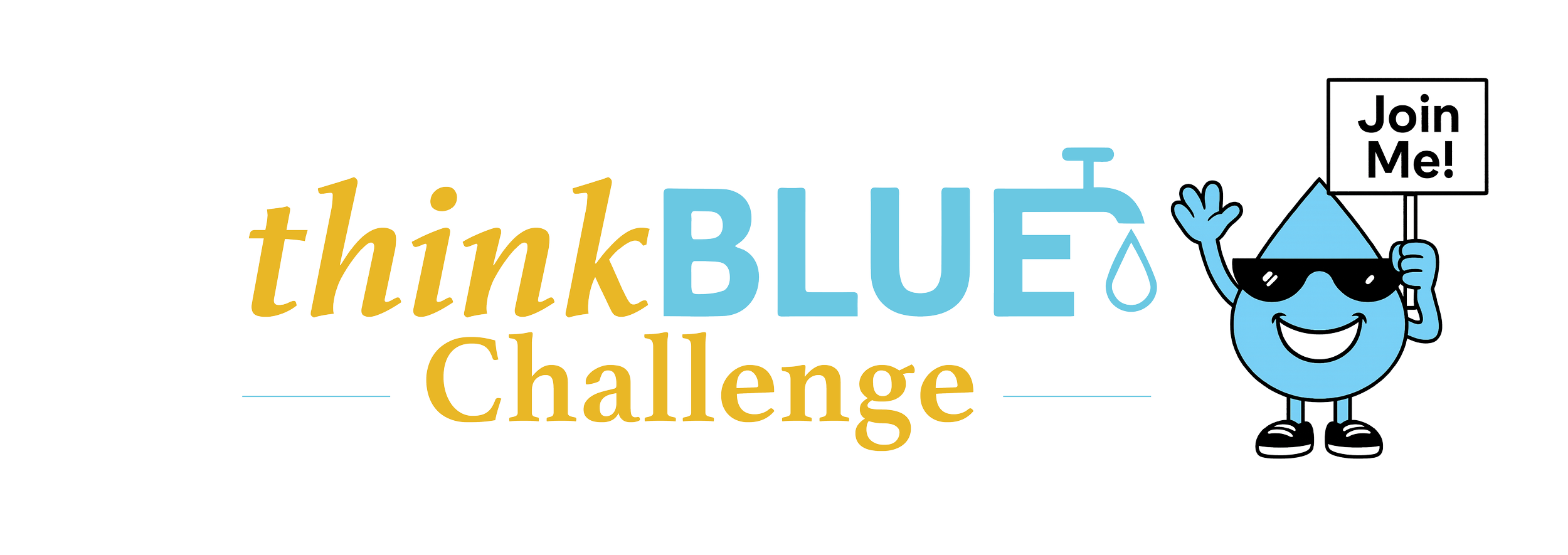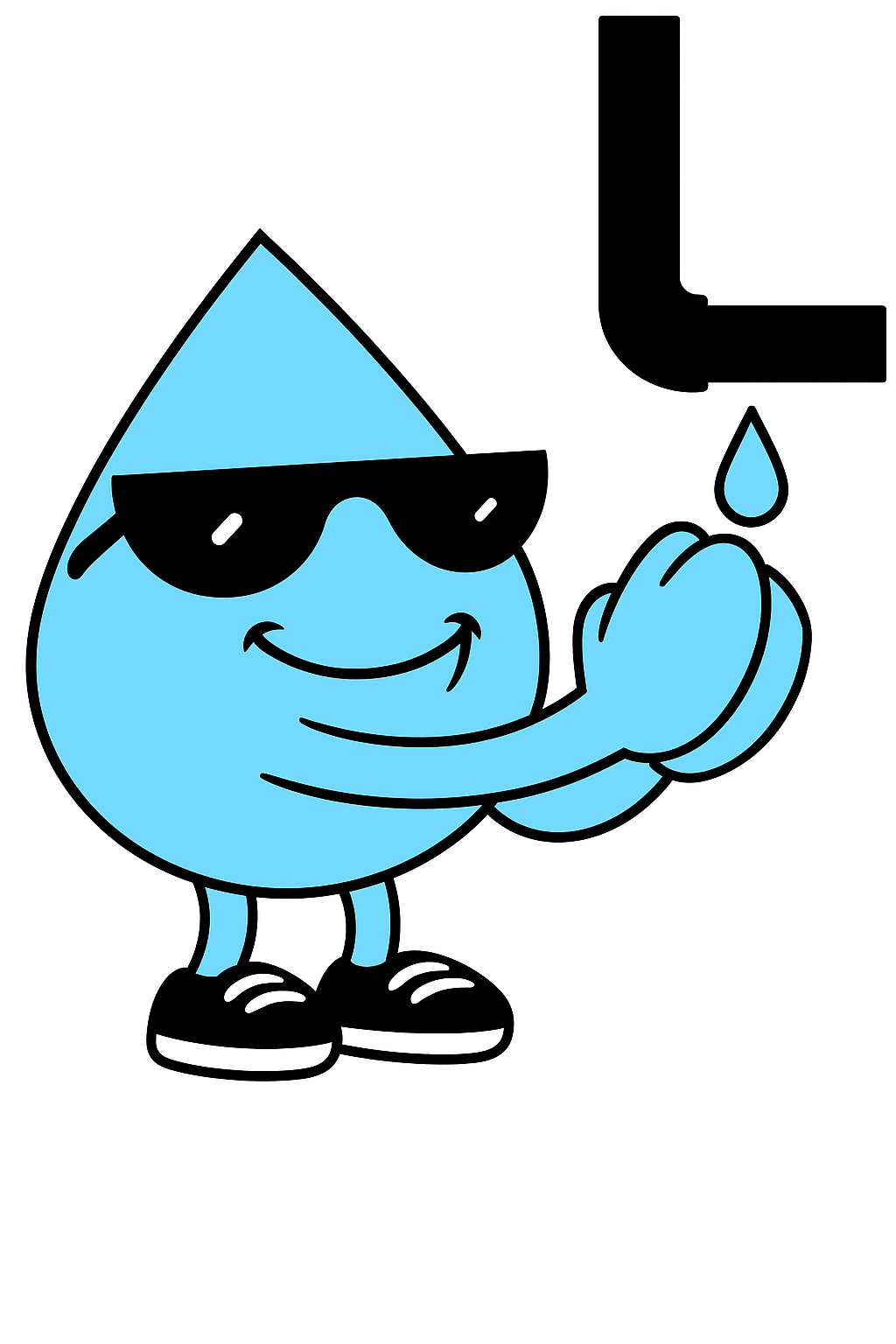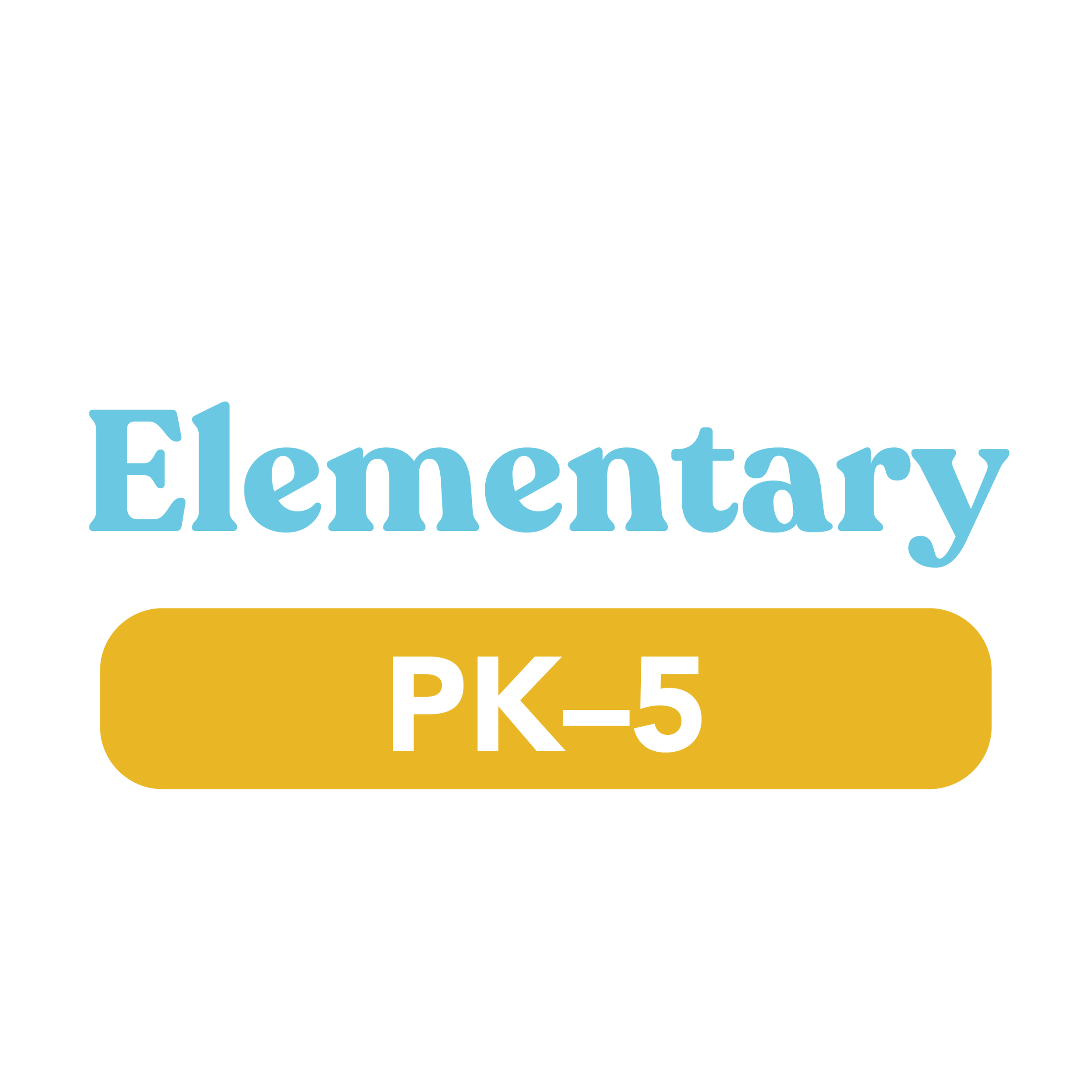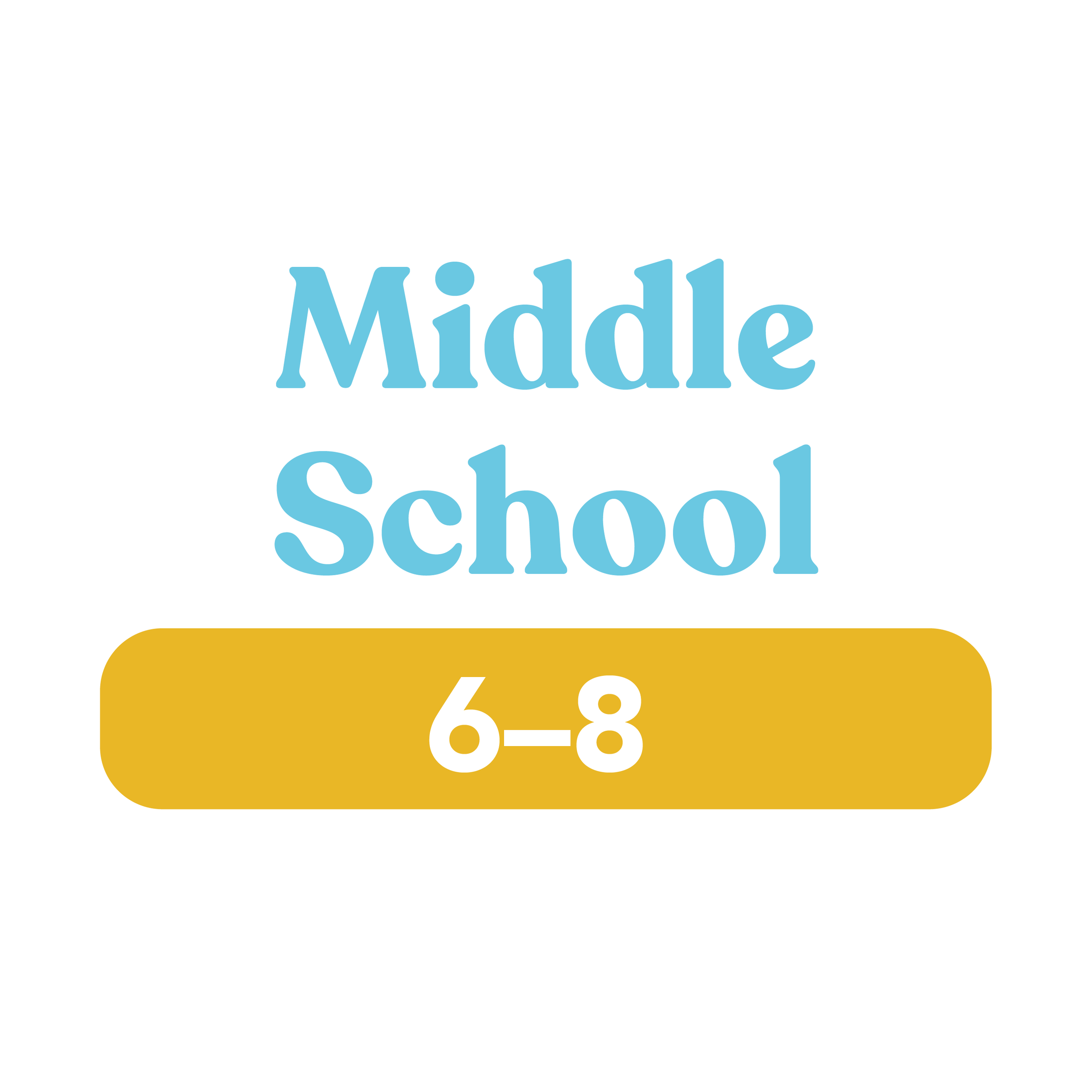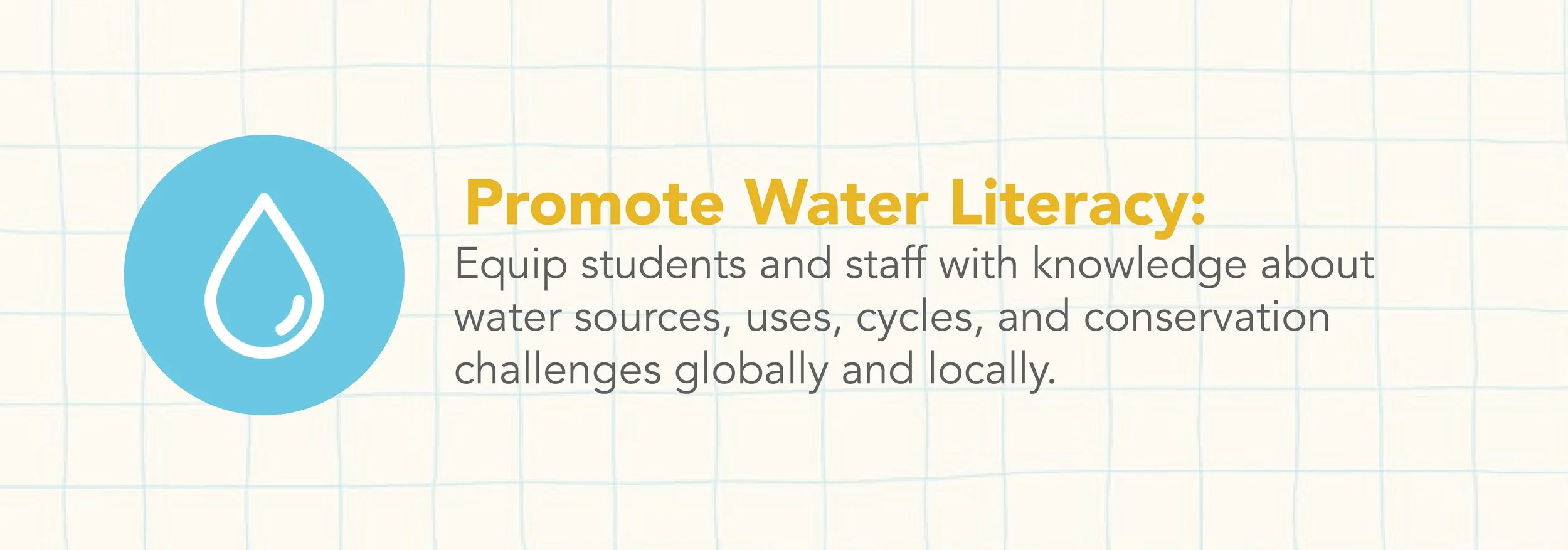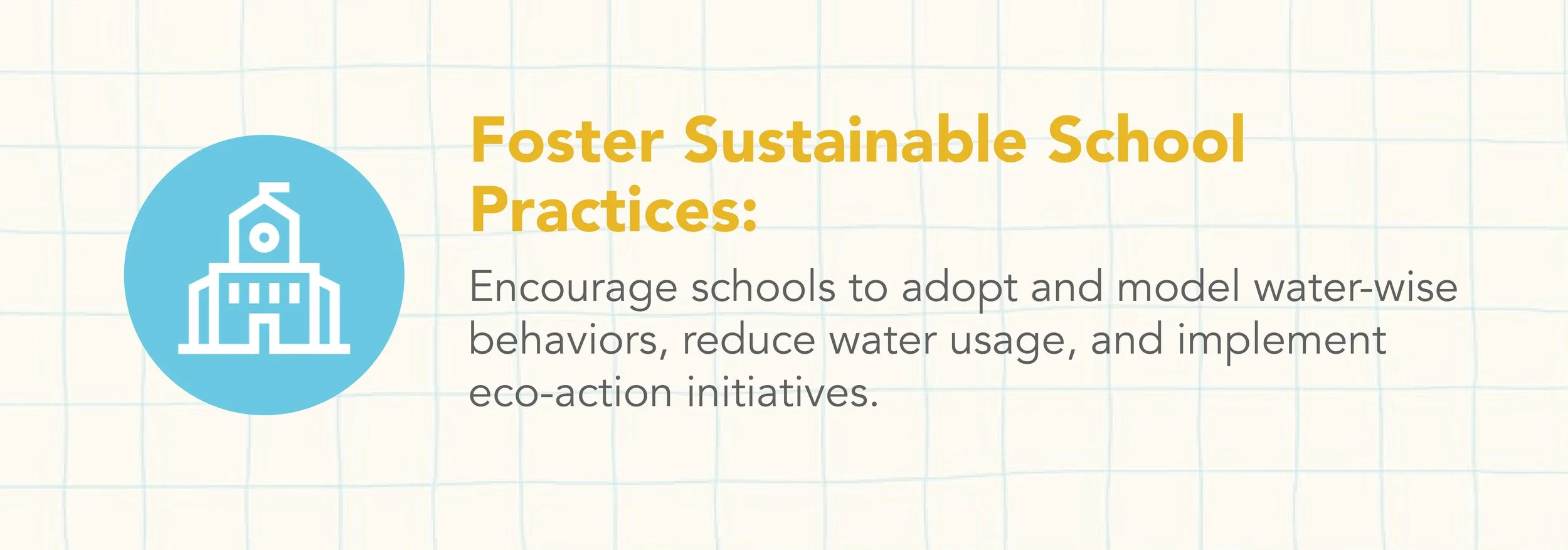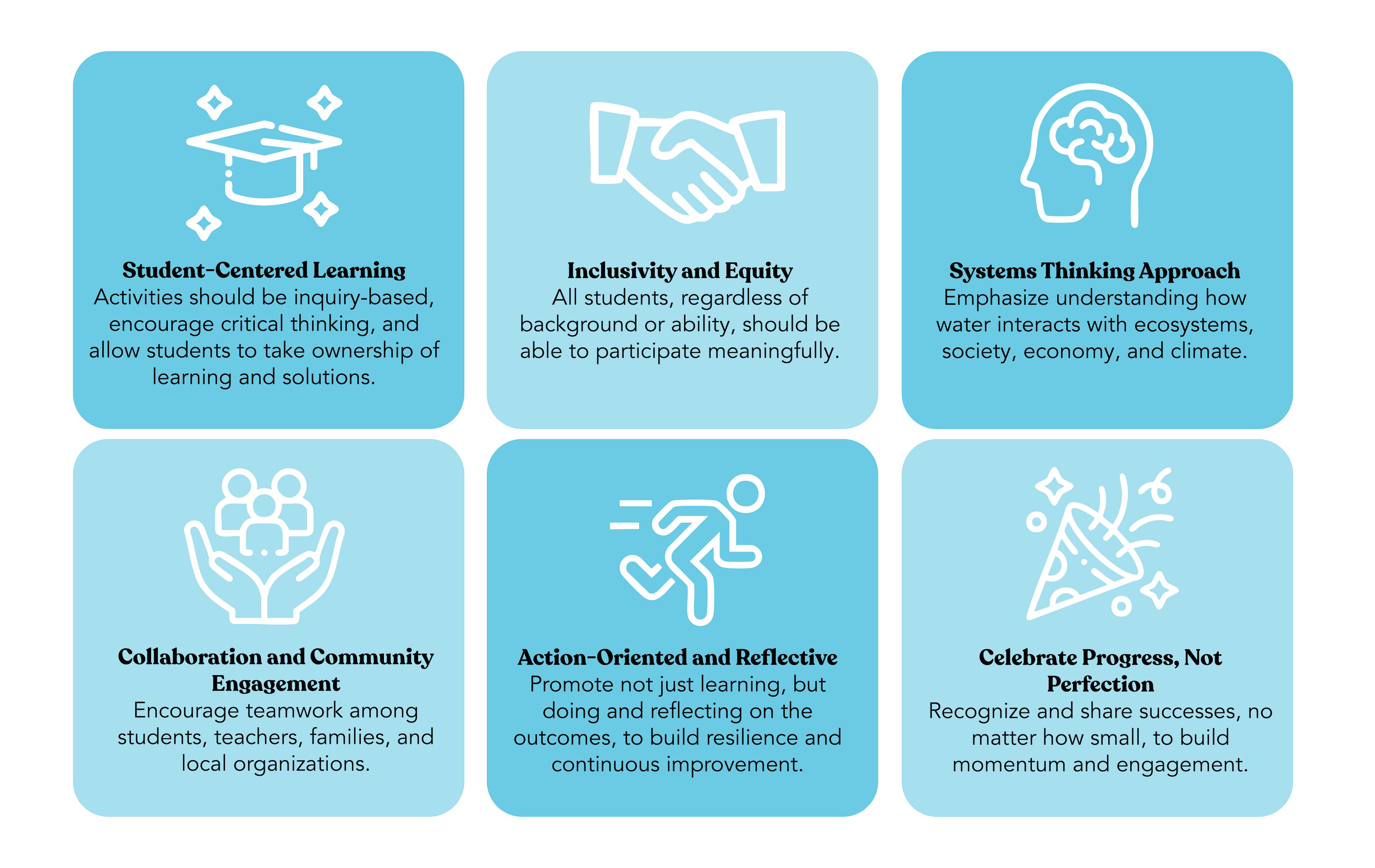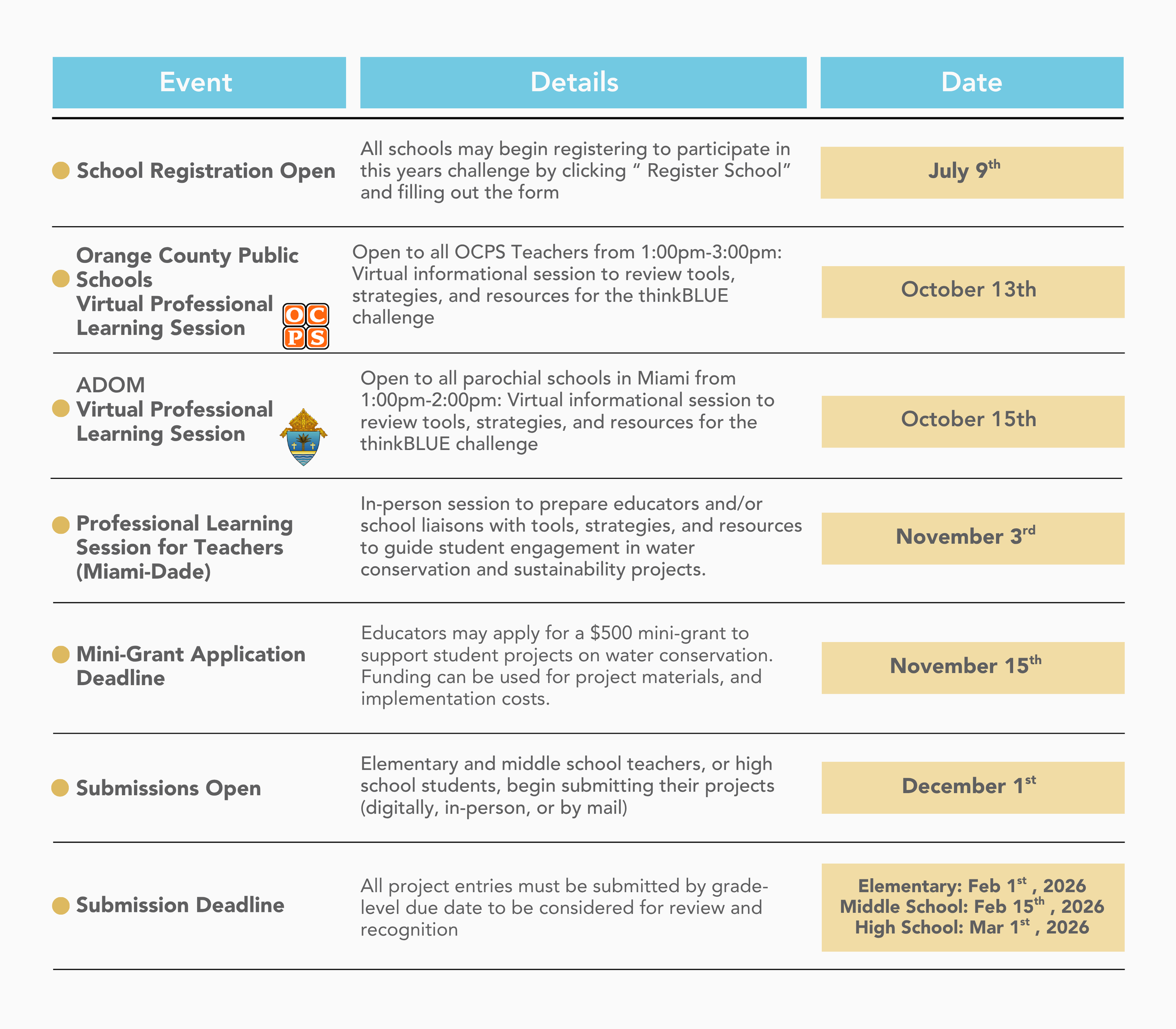What is it?
thinkBLUE Challenge is an annual school-based, student-driven competition designed to raise awareness about water issues and inspire hands-on action.
Students at all grade levels will be tasked with developing real-world projects that will explore water sustainability and develop creative ways to protect this vital resource. This challenge empowers students to grow as global citizens who value, protect, and advocate for water.
Educators will also have access to annual professional learning sessions and tools to guide student inquiry, critical thinking, and action both in the classroom and in the community.
Who can participate?
The thinkBLUE Challenge is open to PK-12 grade students across elementary, middle and high school across public, charter and private schools.
Students will take part in the challenge by completing projects that match their grade level. Each school may submit up to 3 projects for consideration, per grade level category. Teachers can help select the top submissions for entry.

